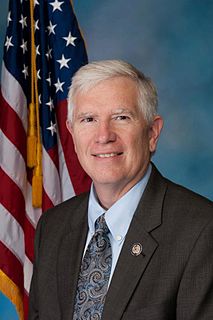A Quote by Richard Florida
We need to find ways to transform the more than 60 million service jobs, which make up 45 percent of U.S. employment, in the same way - rewarding workers financially, encouraging and empowering creative participation, creating professional communities, and so on. We can look to any number of new companies - from Zappos, to Starbucks, to American Apparel - for examples of how this idea might play itself out. We need to do more to make service jobs into higher-paying family-supporting jobs of the future.
Quote Topics
American
Any
Apparel
Communities
Companies
Creating
Creative
Employment
Empowering
Encouraging
Examples
Family
Financially
Find
Future
Higher
How
Idea
Itself
Jobs
Look
Make
Make Up
Might
Million
More
Need
New
Number
Out
Participation
Paying
Percent
Play
Professional
Rewarding
Same
Service
Starbucks
Supporting
Than
Transform
Up
Way
Ways
Which
Workers
Related Quotes
Look at what's happening between Main Street and Wall Street. The stock market index is up 136 percent from the bottom. Middle class jobs lost during the correction: six million. Middle class jobs recovered: one million. So therefore we're up 16 percent on the jobs that were lost. These are only born-again jobs. We don't really have any new jobs, and there's a massive speculative frenzy going on in Wall Street that is disconnected from the real economy.
In 1992, the federal Government actually issued more work authorizations to immigrants and temporary foreign workers than the net number of new jobs created by our economy. Something is fundamentally wrong when we have millions of American citizens and legal residents begging for jobs, and yet we are admitting thousands and thousands of immigrants a year with virtually no consideration to our employment needs or their employment skills.
If we can get to that 3 percent grow, it is $2 trillion to $2.5 trillion worth of more government revenues. It's 12 million additional jobs. And those are 12 million jobs paying into Medicare, 12 million jobs paying into Social Security. Growth really is what's driving all of this and growth is what our focus is, which is why we're willing to accept increased short-term deficits in exchange for that long-term payoff.
I think jobs can have a big impact. I think if we continue to create jobs - over a million, substantially more than a million. And you see just the other day, the car companies coming in with Foxconn. I think if we continue to create jobs at levels that I'm creating jobs, I think that's going to have a tremendous impact - positive impact on race relations.
In working on any one problem, such as higher minimum wages, so many other issues come into play, such as some businesses possibly closing down, thus creating fewer jobs and more unemployment and incentivizing companies to import more goods from abroad, which leads to even less employment at home, and so on.
President Bush said that American workers will need new skills to get the new jobs in the 21st century. Some of the skills they're going to need are Spanish, Chinese, Korean, because that's where the jobs went. Who better than Bush as an example of what can happen when you take a job without any training.
You look at the Pew Hispanic Center study on the number of illegal aliens in America and the number of jobs they have, that's 7.4 million, illegal aliens in America. A quick way to create jobs in America is to remove those illegal aliens from our community. That frees up 7.4 million jobs that American can seek.
You go ask any founder of any company why he or she did it, you will never hear, "I wanted to create jobs for the community" as the number one, number two, number three, number four, number five, number 10 reason for doing so. That is a result of the success the business enjoys. Creating jobs is not why people start businesses. Creating jobs is not how people innovate in business. It's not how they compete.
Twenty million jobs is what we call for in the Green New Deal, which is essentially a New Deal focused on greening the economy on an emergency basis. So it's 20 million jobs, which are mixed, private sector, nonprofits, government jobs where others will not do the job and will not create the employment.

































